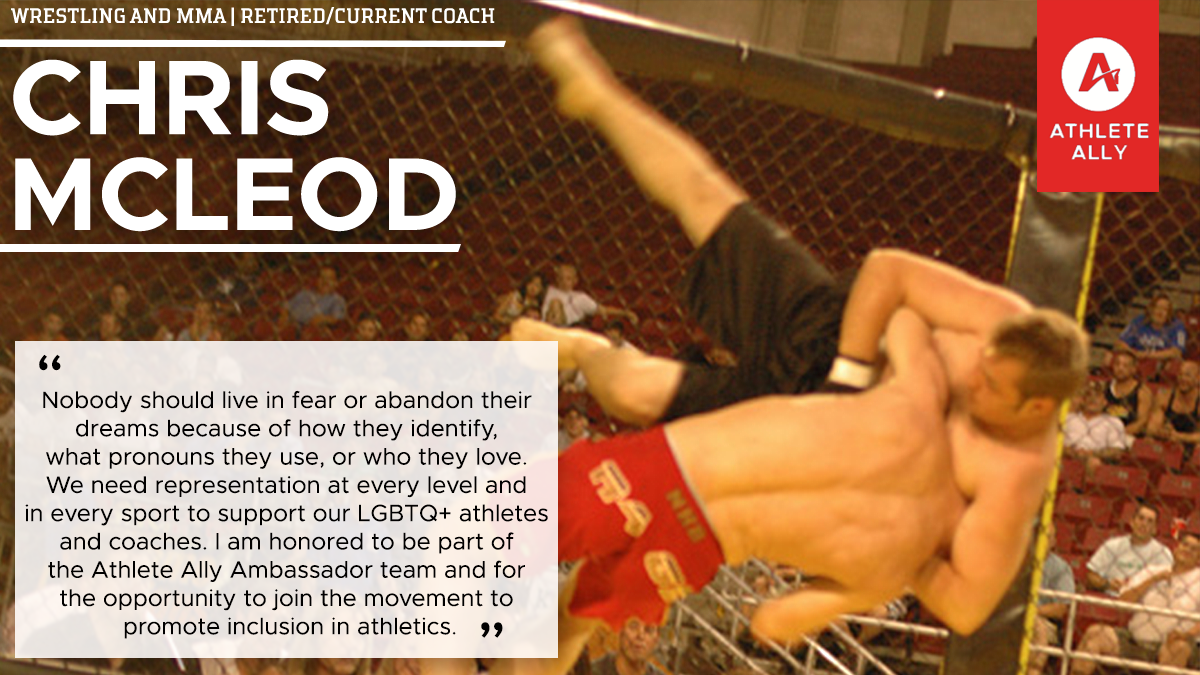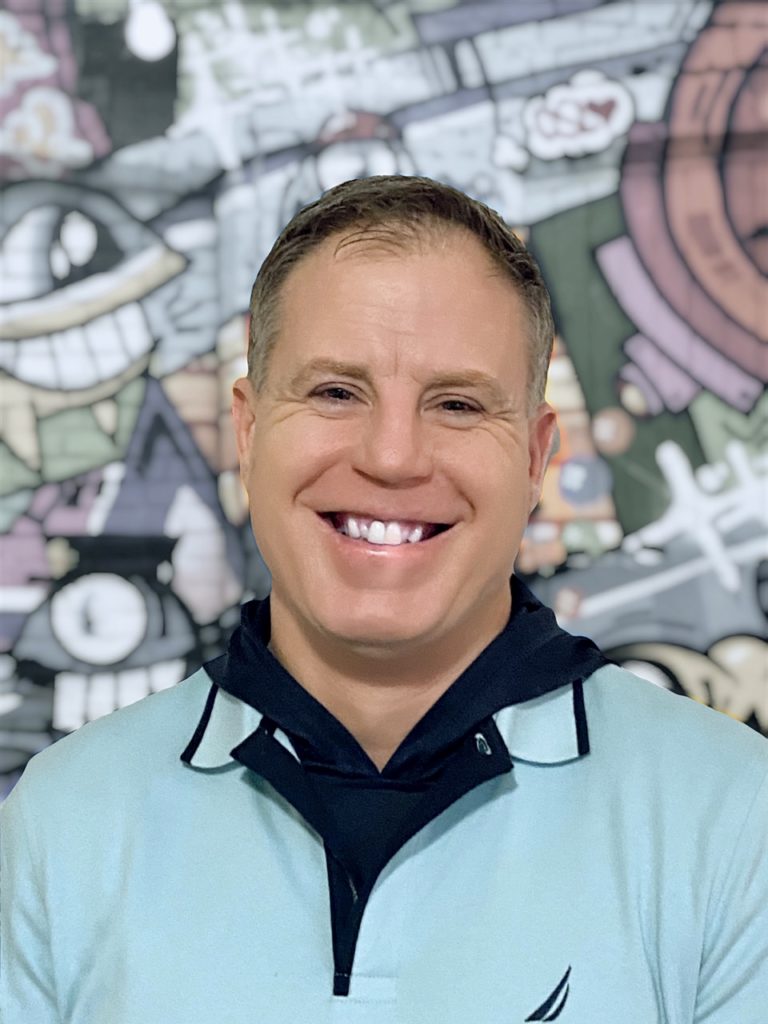MMA Coach Chris McLeod: It’s Time to Fight for Inclusion

By: Chris McLeod, Athlete Ally Ambassador, MMA fighter and coach
I have spent most of my life grappling with myself. Little did I know, the pieces I had fought so hard to conceal are the most beautiful parts of me. I am a wrestler. I am a fighter, a coach, and a dad. Recently, I made the decision to open up about my sexuality and the challenges I have faced as a result of living as a closeted gay athlete.
I graduated from high school in 1990 as a three-time Nevada State champion and All-American wrestler. I went on to become an All-American at the collegiate level and was part of University of Montana-Western’s 1994 NAIA National Championship Wrestling Team. My hard work and perseverance paid off, despite the secret I was guarding so closely. Nobody was aware that during my freshman year in college, I was targeted and brutally beaten by a group of athletes after being lured into an alleyway. I couldn’t seek help or medical care for the fear of being outed in such a humiliating way, so I allowed the trauma to become part of the anger that drove me.
Throughout my life, I feared that if people knew the truth about who I was, it would invalidate my hard work and accomplishments. Society has long perpetuated the myth that gay men are less capable and weaker than their straight counterparts, so I convinced myself that my only choice was to become so proficient at everything I did, that nobody would ever suspect I was different.
In the wrestling room, it was the norm to use to homophobic slurs to imply weakness. If you didn’t win, Coach tossed you a faded out pink singlet and dubbed you the “pink pansy of the week.” Unfortunately, this culture still thrives in many athletic programs around the globe, which leaves LGBTQ+ athletes and coaches fighting for inclusion and equality in sports.
The summer following our National Championship win, I was involved in a near-fatal accident that abruptly ended my college wrestling career. When this happened, I spiraled into a decade-long battle with alcoholism. After years of self-destructive behavior, I spent some time in rehab and decided it was time to change my life, but I chose to remain closeted.
In my late 20s, Mixed Martial Arts (MMA) emerged as a natural progression for a former college wrestler. I spent several years fighting, coaching professional fighters and training with high-profile camps like Team Xyience, The Lion’s Den and Murcielago MMA. In 2008, I established a professional MMA team, the High Desert Hitmen, and promoted fights throughout Northern Nevada until my focus began to shift almost exclusively to coaching. I have dedicated most of my adult life to sharing my love of sports with athletes of all ages and skill levels, through coaching. I have coached youth, high school, professional, and college athletics, including wrestling, baseball, tennis, volleyball, basketball, and golf, and have committed myself to advocating for underrepresented and marginalized groups of student athletes.

I began my coming out journey about two years ago, after reaching a point in my life where I could no longer hide from myself and was no longer willing to hide who I am from the world. There are tough issues to address and crucial conversations to be had in terms of ensuring that LGBTQ+ coaches, athletes and allies can feel safe and supported in the world of athletics at every level. If I, as a gay coach and athlete do not fight for inclusion, how can I expect anyone else to? The time is now, for us to work to facilitate a shift in the way the world views LGBTQ+ athletics.
Earlier this month, Athlete Ally launched their latest Athletic Equality Index, a comprehensive ranking of LGBTQ-inclusive policies and practices at all NCAA Division 1 athletic departments. The data shows that only 16% of these institutions offer LGBTQ+ trainings to athletic staff. As a coach and athlete, this concerns me. When coaches are educated about LGBTQ+ issues and how to cultivate inclusive teams, they help create spaces where athletes can be their full selves.
I am excited to bring my training, insight, and enthusiastic approach to teams and organizations aspiring to achieve and maintain positive, safe, and inclusive cultures within their athletic programs. Nobody should live in fear or abandon their dreams because of how they identify, what pronouns they use, or who they love. I am honored to be part of the Athlete Ally Ambassador team and for the opportunity to join the movement to promote inclusion in athletics.
Photos courtesy of Chris McLeod
Learn more about the Athletic Equality Index here.
Want to receive stories like this in your inbox? Sign up here.